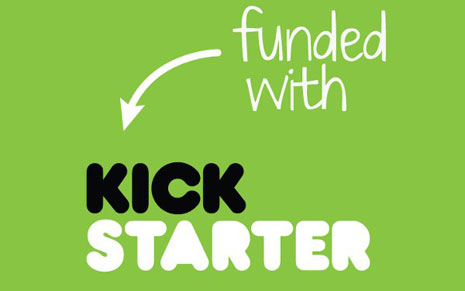
So far I’ve backed two projects on the crowdsource funding website Kickstarter – one of which I wrote about in a recent issue of DEVELOP3D (the Kick lighting studio from RiftLabs) and the other is gokey – a nifty little bracelet that will securely hold my house key whilst I go out for a run.
Both of these projects are currently in manufacture. They are also just two out of the thousands on Kickstarter that have been successfully funded since the site was launched in 2008.
Having been an American site for four years Kickstarter has now launched in the UK. It’s not really a massive surprise as there have been murmurings about it for quite some time, but it was officially made public on 31 October with Kickstarter’s head of community Yancey Strickler telling the BBC:
“The request to expand internationally has long been one of the most requested features”
“We certainly are interested. We’re going to see how the UK launch goes and figure out the next moves from there. There’s lots of places that will be interesting.”
Kickstarter is an online platform where users can showcase their creative projects, from films and novels to computer games and technology products, in the hope of getting them funded through the general public. They set a target minimum of funds that need to be raised in order to get their project produced and then backers have a certain amount of time, usually 30 to 40 days, to pledge money.
As of April 2012, Kickstarter has had more than $175 million dollars pledged and more than 20,000 successfully funded projects.
It is an all-or-nothing funding method where projects must be fully-funded before the end of the set time or no money changes hands. If the project reaches its minimum, the owners get the money with five per cent of the funds raised taken away by Kickstarter as its fee and an additional three to five per cent taken from the Amazon payments account.
Although non US citizens have been using the site it has meant setting up an American address and bank account as Amazon Payments only allows Americans to receive funds, although anyone around the world can back a project.
Despite being a bit of a hassle it has seen users from all over the world pitching their projects on Kickstarter due to its success as a funding method. Morten Hjerde, Kick‘s inventor, told me that his motivation for turning to Kickstarter for funding was because he felt that “most investors don’t understand hardware.”
Similarly, Cristina Cook, the co-creator of gokey claims that Kickstarter is more accessible than approaching a bank for a loan and with a fee straight off the top of any funds raised, there is no interest to pay back. It also allows the product’s owner to retain full ownership and control, which is not always the case with other investment methods.
But Kickstarter UK – is this really such a good thing? Some may argue yes as it has proven so successful in the US (well, a 40% project success rate) and will enable UK inventors and designers to easily pitch their projects to a worldwide audience.
But then what about the crowd funding sites already set up in the UK such as Indiegogo, Pleasefund.us and Crowdfunder? How can they possibly compete with a platform that is so well-known and established? No competition really between a handful of Brits that might pledge money versus hundreds or even thousands from around the world.
But Kickstarter UK does not have its own specific site, instead UK-based projects will be listed alongside US-based ones on kickstarter.com. But the difference now is that UK projects will be able to be built around bank accounts located outside of the US and the only way backers will be able to tell the projects apart are through the £ and $ symbols in the funding information.
But there have been some issues with Kickstarter recently. For instance Al, in his October comment piece, wrote about how photorealistic renderings of a product concept that could be mistaken for finished products are now prohibited on the site.
I’ve also heard people say that Kickstarter is at a risk of becoming overcrowded as there are so many projects listed that backers might not be able to decipher those diamonds in the rough. Also new projects may not get the publicity and exposure they might have been hoping for as they jostle for our attention.
Well, only time will tell…
But in the meantime, we’d love to follow a UK-based project from first pitch so, if you are in the UK and are thinking about launching your product on the site, get in {encode=”tanya@x3dmedia.com” title=”touch”}.






